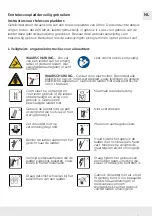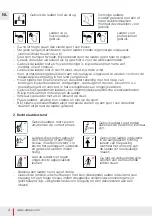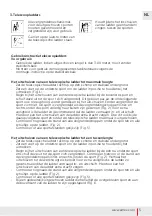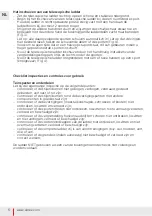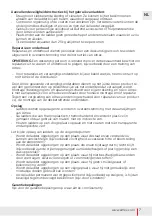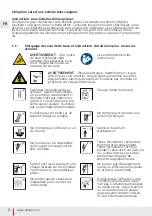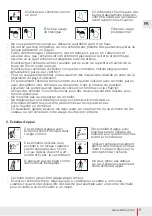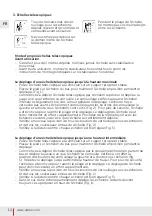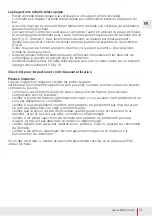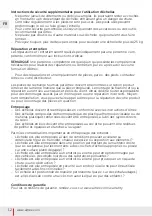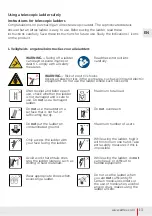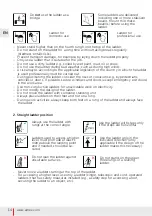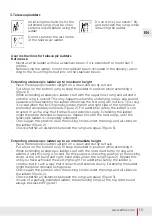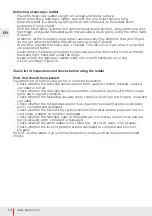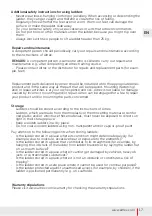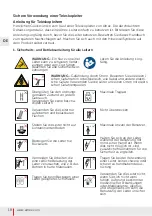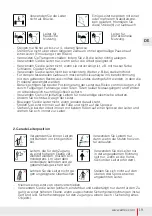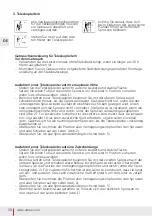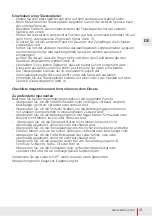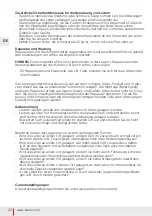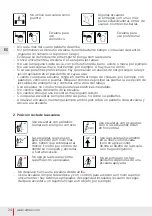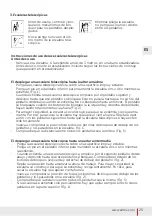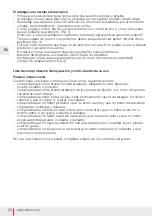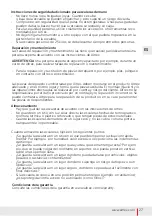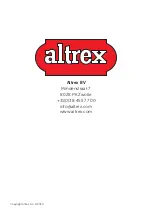
EN
17
www.altrex.com
Repairs and maintenance
A competent person should periodically carry out repairs and maintenance according
to the instructions of Altrex.
REMARK:
A competent person is someone who is skilled to carry out repairs and
maintenance e.g., after completing an Altrex training course.
- Please contact Altrex or the distributor for repairs and replacement parts (for exam-
ple, feet).
Additional safety instructions for using ladders
- Never wear loose-hanging clothing or jewellery. When accessing or descending the
ladder, they can get caught and therefore, create the risk of falling.
- Regularly check whether the feet are not worn. Worn-out feet can damage the
surface or make the ladder slide away.
- For your personal safety, only use accessories or aids that Altrex recommends.
- Do not put tools or other materials under the ladder, because you might trip over
them.
- Always work with two people to lift a ladder heavier than 25 kg.
Replacement parts delivered by Altrex should be mounted onto the appropriate Altrex
product and in the same way as the part that will be replaced. Mounting (fastening)
and/or repair activities is at your own expense and risk. Altrex is not liable for damage
caused by incorrect mounting and/or repair. Altrex can be engaged for a fee to repair
your product and/or mounting the parts concerned.
Warranty stipulations
Please visit www.altrex.com/warranty for checking the warranty stipulations.
Storage
- Ladders should be stored according to the instructions of Altrex.
- Ladders, which are made from thermoplastic or thermosetting material or reinfor
ced plastic and/or which use these materials, must never be exposed to direct sun
light in their storage place.
- Keep wooden ladders in a dry place.
- Do not coat wooden ladders using non-transparent and/or vapour-proof paint.
Pay attention to the following points when storing ladders:
- Is the ladder stored in a place where its condition might deteriorate quickly (for
example, due to moisture, excessive heat or exposure to the elements)?
- Is the ladder stored in a place that contributes to its straightness (for example, by
hanging the side-rails of the ladder from ladder brackets or by laying the ladder flat
on a smooth surface)?
- Is the ladder stored in a place where it cannot get damaged by vehicles, heavy ob
jects or contaminated substances?
- Is the ladder stored in a place where it is not an obstacle or constitutes a risk of
tripping?
- Is the ladder stored in a safe place where it cannot be used for criminal purposes?
- Is the ladder protected against unauthorised access (for example, by children), if the
ladder is positioned permanently (e.g., on scaffolds).

